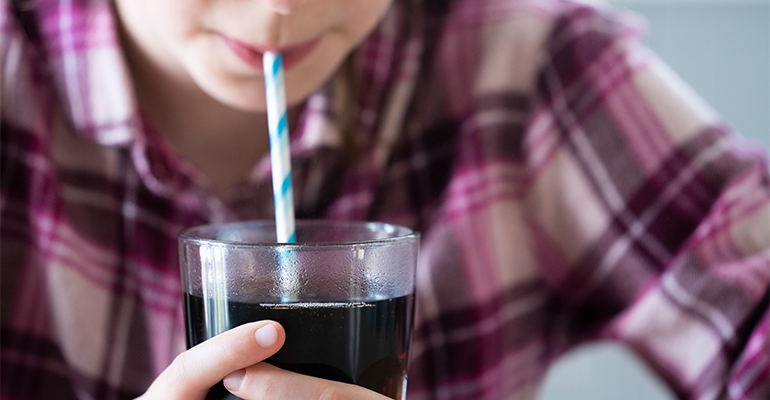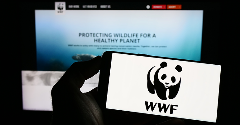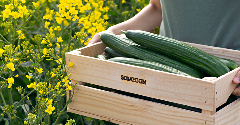News
European soft drinks industry celebrates sugar reduction milestones as the ‘war on sugar’ continues
3 Aug 2022
The European soft drinks sector has achieved a 17.7% reduction in average added sugars since 2015, says its industry association, UNESDA. However, experts warn that the “war on sugar” will intensify from both consumers and governments in the next few years.
A year after setting new health and nutrition commitments, UNESDA said the European soft drinks sector has delivered a further 3.6% reduction in average added sugars between 2019 and 2021 – taking the overall average reduction in added sugars to 17.7% since 2015.

‘’Today’s announcement shows that our efforts to meet our latest sugar reduction target are delivering results: a further 10% reduction in average added sugars in our drinks in the EU27 and the UK from 2019 to 2025. It also demonstrates our ongoing commitment to encourage consumers towards heathier drink options by offering them more no- and low-calorie products,” said Ian Ellington, president of UNESDA Soft Drinks Europe and senior vice-president and chief marketing officer for PepsiCo in Europe.
While commending existing reformulation efforts, experts have also warned that an increased level of attentiveness to ingredients, especially as people look to maintain long-term health and manage weight gain experienced through the pandemic, will lead the so-called “war on sugar” to intensify further in the coming years.
Consumer scrutiny to drive sugar reduction
“Over the last decade, there has been a high level of scrutiny towards sugar content within the soft drinks industry, and this is something that is increasingly influencing purchasing habits,” said Mike Hughes, head of research and insight at FMCG Gurus. “Indeed, a total of 64% of Europeans say that they actively seek out low-sugar offerings when buying fizzy drinks, whilst 55% say this in relation to juice.”
Speaking to Ingredients Network, Hughes noted that in 2021, 54% of consumers in Europe said they have been more attentive to ingredient listings. When asked why, the most popular answer given was to avoid intake of “bad” ingredients (61% of responses). Furthermore, data from FMCG Gurus shows that reducing sugar ranked second in actions that consumers plan to take (58%), behind eating more fruit.
“Irrespective of motives, heightened efforts will be made to reduce sugar intake,” Hughes said, noting that data now shows that 59% of Europeans say that they know the difference between natural sugar and added sugar – “meaning more education and savviness on the topic, as opposed to simply labelling all sugar as bad”.
Government mandates begin to take effect
While consumer pressure for healthier and lower-sugar products is clearly mounting, many also argue that the real driver of successful product reformulation has been the increased focus put on nutrition and public health by governments in recent years – with ambitious targets, new legal restrictions on advertising, and taxes all taking effect.
“It's [a] remarkable effect in terms of showing how reformulation done by a tax can work,” said Graham MacGregor, professor of cardiovascular medicine at Queen Mary University of London, who chairs the campaign group Action on Sugar.
“The downside is, of course, in order to do this over course of a few months – which you have to do in order to not hit the threshold on the day the tax starts – it did mean using artificial sweeteners.”
He noted that the use of sweeteners is “the only practical way” to achieve a sugar reduction in a short space of time, especially when looking to move from a drink that contains approximately 10g or 15g sugar per 100g to one that is less than 5g per 100g to comply with new tax thresholds.
“There’s no evidence that artificial sweeteners can have harmful effects,” he said. “I think that’s pretty unlikely.”
“However, that doesn’t mean calorie intake is reduced through the use of artificial sweeteners,” he added, noting that studies have shown that when people switch from a sugary drink to artificial sweetener, their overall caloric intake over the course of a day does not significantly change.
One suggested reason for this is that people still have a desire for other sweet foods and drinks after a low-sugar drink, he said, noting that the sweetness has been suggested to stimulate appetite.
Hidden sugars: A consumer concern
Hughes noted that another area on which the beverage industry can capitalise in terms of consumer trust and engagement is to further simplify labelling so that is as transparent as possible.
“A total of 56% of Europeans admit to being concerned about hidden sugars in products, and this is something that has also been a media issue within the beverage industry,” he said. “Simplifying labelling at a time when brands are reducing sugar content will further appeal to consumers in the region.”
However, he noted that there was still a clear consumer demand for soft drinks and sodas.
“Even at a time of increased health consciousness, consumers don’t want to give up moments of small indulgences completely,” he said. “They simply want to find alternatives associated with reduced guilt.”
Related news

Soy story: WWF scores UK supermarkets on sustainability efforts
12 Nov 2025
WWF has published its latest “Soy Scorecard”, ranking UK supermarkets’ efforts to combat deforestation and land conversion in their soy supply chains.
Read more
Standing Ovation and Bel scale up casein production from dairy co-products
11 Nov 2025
Foodtech company Standing Ovation has partnered with cheese specialist Bel Group to manufacture dairy serums for industrial-scale casein production via precision fermentation.
Read more
New UPF standard hoped to offer consumers ‘coherence and clarity’
10 Nov 2025
Ingredients companies are being urged to enter “a new era of partnership and innovation” following the launch of the industry’s first non-UPF verification scheme.
Read more
Whistleblowers accuse UK meat industry of promoting cheap, unsustainable supply
7 Nov 2025
An anonymous group of industry insiders has accused the UK’s biggest food companies of systematically driving down meat quality and welfare standards.
Read more
Bord Bia presents Irish dairy ingredient suppliers at Fi Europe
6 Nov 2025
Dairygold Co-operative Society, The Carbery Group, and Ornua Co-operative: Meet with sustainable producers of Irish dairy ingredients at Food ingredients Europe 2025, Hall 7.2 Stand M18.
Read more
AI attraction means foodtech startups must ‘prove’ rather than ‘promise’
4 Nov 2025
Reports suggest that artificial intelligence (AI) is sucking investment from foodtech and agritech, but investors say the picture is complicated.
Read more
Penguin and Club bars no longer classed as chocolate
30 Oct 2025
Penguin and Club bars can no longer be classified as chocolate after the pladis-owned McVitie’s brands turned to cheaper alternatives amid the ongoing cocoa crisis.
Read more
Could plant-based protection replace plastic packaging?
29 Oct 2025
Swedish foodtech company Saveggy has launched an additive-free plant-based protection for cucumbers, offering a waste-free packaging solution for fruit and vegetables.
Read more
Does promoting protein content push up plant-based sales?
27 Oct 2025
Promoting the protein content of meat-free products is a more effective sales strategy than adding carbon labels, a study of UK bakery chain Greggs suggests.
Read more
Amazon Grocery launch aims to balance quality with affordability
22 Oct 2025
Global e-commerce giant Amazon has introduced a new private-label food brand, combining existing Amazon Fresh and Happy Belly products with new everyday items.
Read more